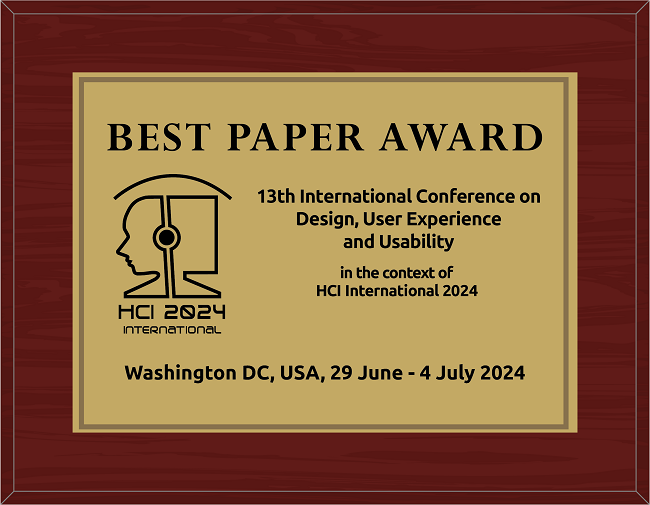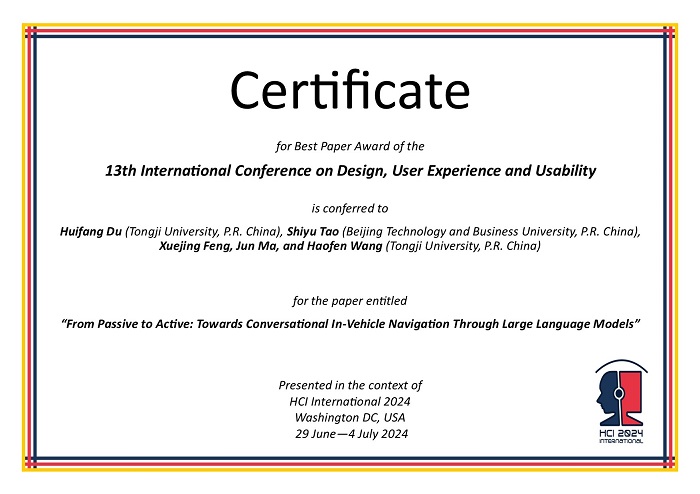
The Best Paper Award of the 13th International Conference on Design, User Experience and Usability
has been conferred to
Huifang Du (Tongji University, P.R. China),
Shiyu Tao (Beijing Technology and Business University, P.R. China),
Xuejing Feng, Jun Ma, and Haofen Wang (Tongji University, P.R. China)
for the paper entitled
"From Passive to Active: Towards Conversational In-Vehicle Navigation Through Large Language Models"

Huifang Du
(presenter)

Best Paper Award for the 13th International Conference on Design, User Experience and Usability, in the context of HCI International 2024, Washington DC, USA, 29 June - 4 July 2024

Certificate for Best Paper Award of the 13th International Conference on Design, User Experience and Usability presented in the context of HCI International 2024, Washington DC, USA, 29 June - 4 July 2024
Paper Abstract
In-vehicle navigation systems play a crucial role in the automotive intelligent cockpit and provide users with various functions. However, current systems make users suffer from passive experiences, which result in many inconveniences, such as low error prevention, limited user control, and insufficient user freedom. To address the existing limitations, we propose an interactive navigation paradigm based on conversations to enable users to actively engage in navigation, express their needs, and manage existing limitations. To explore the feasibility of this concept, we develop a simulated conversational navigation assistant based on prompting a large language model (LLM). The prompt designed for the LLM leveraged for conversational navigation is curated with tailored instructions and navigation functions. We conduct a subjective experiment to assess the impact on user perceptions of the conversational navigation system. Findings indicate that conversational navigation is deemed satisfactory, efficient, and more natural. Furthermore, users express that involvement with navigation during conversational navigation can reduce driver distraction, thus enhancing driving safety. This study highlights the potential to transform traditional navigation experiences into more engaging and efficient processes, paving the way for future research to further enhance user-centered navigation through additional external functions and optimized dialogue systems.
The full paper is available through SpringerLink, provided that you have proper access rights.